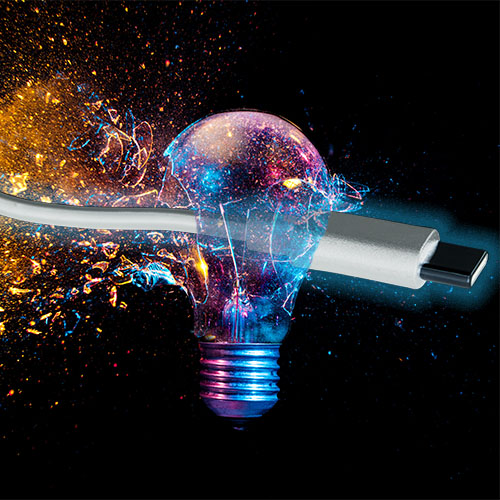Technology is part and parcel of living in today’s modern age. Wherever you go, no matter what you’re doing, it’s impossible to get away from technology.
The Hidden Cost of IoT
From the GPS in your car, to the smartphone you use to watch videos and check your work emails, technology is indispensable. We’re stuck in a digital box with no escape, and that box is getting smaller and smaller, with the advent of always online, internet-connected devices that are part of the so-called Internet of Things (IoT).
The Internet of Things offers the promise of convenience at a low, corporate-subsidized price tag for a high-quality product that does what you need it to do. You don’t even own it. However, it comes with a hidden cost. This digital reality in which we live provides corporations with all new ways to monetize our existence.
Your life, experiences and habits are for sale. Everything you do is tracked; nothing is off-limits. How many times you open your fridge? How many times a week you wash your clothes? How often you sip your drink? It’s all for sale. Corporations are selling that information, and governments are buying it.
As mundane as it seems, it’s in the interest of every marketer to know what your habits are. Nestlé wants to know how many scoops of sugar you put in your cup of coffee, how much milk you put in it and how many times a day you drink it.
They sell you products they know you’ll want to buy through targeted ads — and then some. Corporations will argue that information helps them make better products — and that may be so — but the one-size-fits-all approach distills every unique experience into something generic. A cup of Nescafé, while decent, will never taste quite as good as your personal cup of coffee.
You are for sale — whether you like it or not.
Security and privacy are sacred, but the Internet of Things deprives us of our most intimate human experiences. To be part of this new digital reality, we end up sacrificing what little privacy we have left for ourselves without even realizing what we’re giving up. With the ever prevailing claws of the IoT encroaching into our daily lives, it’s impossible to escape. There is no “off” switch or opting out unless you want to live as a pariah in the wilderness — as Henry David Thoreau did in Walden.
The United Kingdom is now set to launch a social credit program to tackle the country’s obesity crisis. This program, which is modeled on a similar scheme in Singapore, calls on citizens to install an app that tracks the dietary habits and physical activity of those who choose to opt-in.
In return, the high-performing users are rewarded with “loyalty points” to be exchanged for discounts, free tickets and other incentives — all subsidized by the taxpayer, of course. Based on some cost-benefit analysis, the economists behind the strategy figured out it’s cheaper to train people’s behavior than it is to treat them after they get sick and depend on the socialized National Health Service to take care of them.
Either way, it’s behavioral conditioning. Such systems, which operate on information provided by the Internet of Things — allow coercive governmental and corporate forces to run massive, country-sized Skinner boxes and silently dictate the behavior of every individual through a system of rewards and punishment.
What may seem like an opt-in program that rewards people for exercising and buying healthy foods is, in fact, a punishment for doing the opposite. That one time you sneak a bite of a doughnut? That’s your extra allowance for the week gone.
None of this would have ever been possible were it not for the ubiquity of the Internet of Things.
The world’s governments, for all their good intentions of behaving like nanny states, don’t always have anyone’s interests at heart. After all, the food pyramid was a lie. Corn is bad for you. Can you really trust the government to dictate what’s best for you?
Ted Kaczynski, better known as the Unabomber, infamously described this digital reality as the “technological society” to which we are enslaved. In his so-called manifesto, the “Industrial Society and Its Future,” Kaczynski warned of the next — and now ongoing — Industrial Revolution and its consequences on the human race.
Although it’s impossible to justify his acts of terrorism upon private citizens and institutions alike, Kaczynski’s fears are being proven right with every step of the way we take on the road to glorious technological connectivity.
Should you wish to get really geeky into how network vulnerabilities can really mess with your life, we can provide a link to an article on a site actually called IoT-NOW. Should that sound like a truly horrible way to spend some of your precious time, we can suggest a much tastier alternative. may we suggest a gander at Ben & Jerry’s Flavors? Or you could go outside and take a walk and try to imagine all the little networks tying all your neighbors’ stuff together and all the teeny bytes of data floating invisibly along your trail. At they point, a different kind of “bite” might seem like a darned good idea. We can assure you that odds are very good that someone near you has ice cream for sale.























